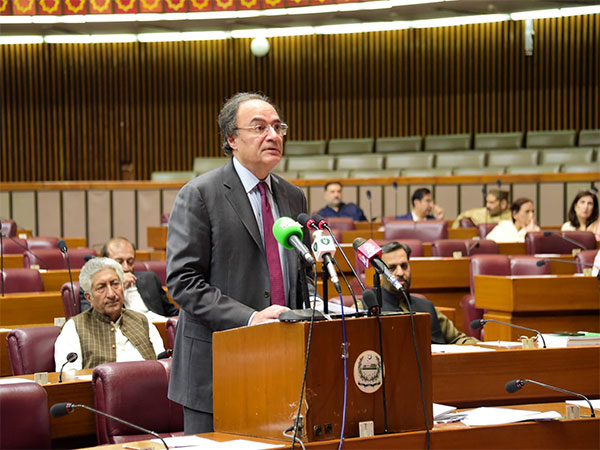Pakistan's Finance Minister Confesses: New Tax Measures Bring Citizen Stress
Pakistan's Finance Minister Muhammad Aurangzeb acknowledged public stress due to new budget taxes after criticism. President Asif Ali Zardari approved the Finance Bill 2024. Despite understanding the financial burden on citizens, Aurangzeb emphasized efforts for future financial relief. The government seeks to stabilize the economy while managing IMF programs and foreign investments.

- Country:
- Pakistan
Pakistan's Finance Minister Muhammad Aurangzeb acknowledged on Sunday the public's stress stemming from the newly imposed taxes in the budget. His remarks followed widespread criticism of his revenue measures. President Asif Ali Zardari has granted approval to the Finance Bill 2024 as advised by the Prime Minister per Article 75 of the Constitution. This bill will be effective from July 1, as announced in a press release by the President's Secretariat.
The National Assembly passed the budget with amendments on June 28, maintaining the gross revenue target at Rs 17,815 billion, including Rs 12,970 billion from tax revenues and Rs 4,845 billion from non-tax revenue.
During a press conference, Aurangzeb empathized with the salaried class's financial strain due to new taxes and promised relief when possible. He assured that efforts were ongoing to phase out the category of non-filers through government initiatives.
Aurangzeb announced that taxes on retailers would start from July 1. Despite the pressure from new taxes, he emphasized the necessity of shedding IMF programs in the future. To date, 42,000 retailers have been registered. The minister reaffirmed that companies reporting losses would not be taxed.
Consultations with the IMF regarding the budget took place, and a new IMF program is currently unavoidable, acknowledged even by critics, according to Aurangzeb. An agreement with the IMF is anticipated in July.
The government is transitioning towards Public Private Partnerships, exemplified by Sindh province, after cutting the Public Sector Development Program (PSDP). Aurangzeb mentioned, the construction sector is also being incorporated into the tax net.
The finance minister indicated upcoming economic stability with inflation reduced from 38% to 13%, restoring foreign investor confidence. Microeconomic stability remains the foremost challenge.
The aim is to raise the tax-to-GDP ratio to 13% within three years, alongside reforms to curb theft and corruption in the energy sector through FBR digitization. Tackling these issues would involve reducing the number of people in the process to minimize corruption.
Foreign exchange reserves stand at $9 billion, with significant financial support from the World Bank and IFC for key infrastructure and telecommunications projects. Additionally, ministers have refused salaries and are paying utility bills themselves.
(This story has not been edited by Devdiscourse staff and is auto-generated from a syndicated feed.)
ALSO READ
Public outrage over high taxes in Pakistan for IMF bailout
Health News Round-up: Imfinzi Approval, Women's Protests, and Youth Obesity Challenges
FM Nirmala Sitharaman to hold key pre-budget meeting with industry leaders on June 20
Nirmala Sitharaman to hold pre-budget meeting with industry leaders on June 20
Kenyan Parliament Recommends Scrapping New Taxes Amid Protests










